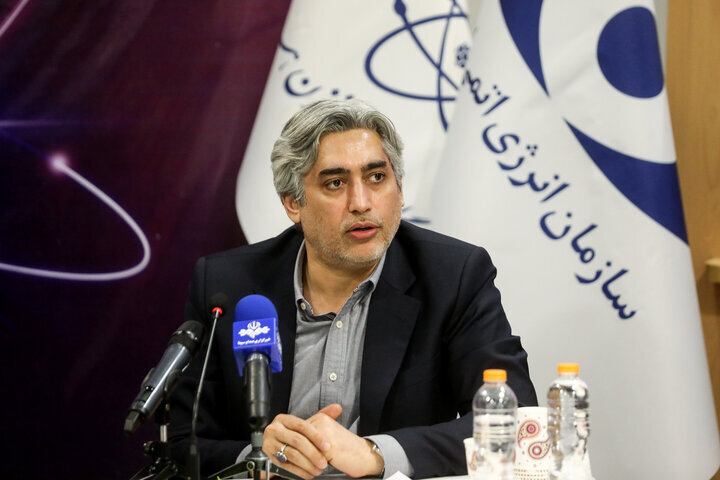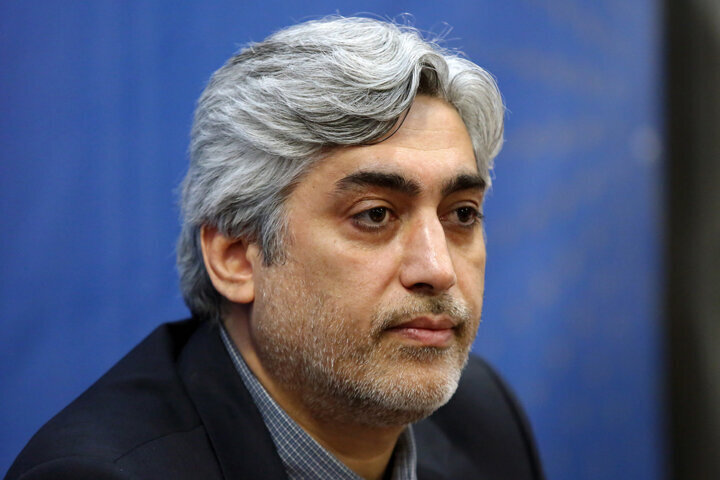The martyr scientist who pioneered peaceful nuclear technology

TEHRAN- Martyr Dr. Seyed Amirhossein Faghihi was one of the devoted and expert scientists in the field of nuclear energy, who attained the highest honor of martyrdom in a treacherous attack by the vile Zionist regime.
In the early hours of Friday, June 13, 2025, one of the nation’s prominent scientific figures, Martyr Dr. Seyed Amirhossein Faghihi, was assassinated by the Zionist regime.
He was a full professor and faculty member of the Nuclear Engineering Department at Shahid Beheshti University, recognized as a pioneer in nuclear physics and peaceful nuclear technologies, as well as one of the few specialists in radiopharmaceuticals in the country.
His scientific and research efforts played a vital role in advancing peaceful applications of nuclear energy, particularly in the treatment of difficult illnesses such as cancer.
Born in 1978 in the city of Shiraz, Martyr Faghihi completed his secondary education and in 2000 received a Bachelor’s degree in Nuclear Physics from Urmia University. He continued on a specialized path, earning a Master’s degree in Nuclear Engineering with a focus on energy from Amirkabir University of Technology in 2003.
His passion for science and research led him to pursue doctoral studies, and in 2008, he earned a Ph.D. in Nuclear Engineering (Energy focus) from the same university, establishing himself as one of the country’s top specialists in this field.
Since 2008, Martyr Faghihi joined the faculty of Shahid Beheshti University, where over years of academic service, he contributed significantly to nurturing nuclear talents through scientific publications, supervising graduate theses, and active participation in research projects. His tireless efforts earned him the rank of full professor in nuclear physics in 2016.
Within academic circles, he was known as a diligent, committed, and meticulous professor who always prioritized national interests and scientific development.
Administrative and leadership roles
Beyond academia, Martyr Faghihi held influential administrative roles. He served as Deputy of the Atomic Energy Organization of Iran and as head of the Nuclear Science and Technology Research Institute, playing an effective role in shaping national scientific policies.
At Shahid Beheshti University, he held key positions including Director of Faculty Affairs, Secretary of the Executive Recruitment Board, and Secretary of the University Accreditation Board. These roles reflected the high level of trust placed in his managerial capabilities and professional competence.

One of Dr. Faghihi’s most important areas of expertise was research and development of radiopharmaceuticals — advanced nuclear technology products used especially in cancer treatment. His role in localizing and expanding this technology within Iran significantly enhanced the country’s scientific standing internationally.
Martyrdom: a defining moment in the life of a devoted scientist
The terrorist attack on June 13, 2025, ended the life of Dr. Faghihi; an attack recognized by many analysts as targeting the scientific achievements of the Islamic Republic in cutting-edge and strategic knowledge fields.
The martyrdom of this distinguished professor is a great loss for the nation’s scientific community. Yet, the path he paved and the students he mentored continue to advance the production of knowledge and progress in peaceful nuclear technologies.
Martyr Dr. Seyed Amirhossein Faghihi embodied the ideal of a devoted, expert, and patriotic scientist — a man who dedicated his life and ultimately sacrificed his life in the service of humanity. His name will remain eternal in the history of Iranian science and resistance.
Words from the martyr’s mother: A humble man who shunned spotlight
Martyr Faghihi’s mother described her son’s ethical, scientific, and spiritual traits, saying: “He was not one for showmanship and often hid his responsibilities even from us.”
She emphasized his profound humility, adding: “One of his most outstanding features was his strict avoidance of any self-promotion or boasting about his scientific and administrative activities. Until his last breath, he never spoke of his positions or responsibilities in the nuclear field, and we often learned about parts of his work only through news reports.”
She stressed that Dr. Faghihi always avoided being in the limelight: “We never heard him talk about his important roles, and even the title ‘Doctor,’ which many attributed to him, made him uncomfortable. This disregard for status and titles reflected his deep sincerity and hidden asceticism.”
She added: “He repeatedly rejected invitations from various countries offering residency and complete welfare packages including housing, vehicles, and high salaries. But he turned down all these offers to remain and serve his homeland.”
Memories from the martyr’s sister: devotion to knowledge and service
His sister recalled: “My brother believed that acquiring knowledge and serving people only has value when done sincerely for God’s pleasure, without any expectation or demand. This belief shaped his thoughts and behavior and was evident in every aspect of his life.”
She said: “In family and friendly gatherings, Martyr Faghihi avoided discussing work or political issues and never involved us in the details of his responsibilities. Even many close friends were unaware of his stature in science and technology. He said avoiding work talk was a way to respect and maintain peace in the family.”
Iran: a choice as great as karbala
She recounted a lasting memory: “Once I asked him if he regretted not emigrating and staying in Iran. His answer was unforgettable. He said: ‘That question is like asking Imam Hussain (peace be upon him) if he regretted going to Karbala.’ This response showed his profound vision of his mission, likening it to the path of the Ahl al-Bayt (peace be upon them).”
Martyrdom on Eid: divine reward for years of sincere service
Referring to his martyrdom coinciding with Eid al-Ghadir, she said it was a divine grace and reward for his years of quiet dedication, adding: “We believe God compensated his hidden, sincere efforts on the best day with the exalted rank of martyrdom, a choice that carries a profound message for us and society.”
She emphasized the importance of introducing the country’s true scientific and ethical role models to young generations: “Our children must know that their role models are those who choose their life paths with knowledge, humility, faith, and sacrifice. Martyrs like Amirhossein are living proof that one can reach the highest scientific peaks while remaining humble, faithful, and anonymous.”
(Source: Mehr News Agency)
Leave a Comment